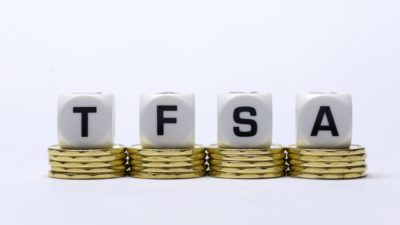There’s no dancing around it. Canadian stocks are not cheap.
Three commonly used value metrics confirm it. The first is the CAPE ratio (cyclically adjusted price-to-earnings), which measures a market’s valuation versus the average earnings over the last 10 years. This helps to smooth out things that could impact shorter-term earnings, like one-time write-offs or the kind of turmoil we had in 2008-09.
The current CAPE ratio for Canada’s benchmark stock index is 20.5, which is hardly cheap. It is, however, cheaper than a couple of other notable markets, namely the United States and Japan.
The other two value metrics are a little simpler but are still equally effective. We can look at a market’s price-to-earnings and price-to-book value ratios. Those two ratios for the TSX Composite Index are 23.7 and 1.9, respectively. Neither are very cheap.
This should come as little surprise for value investors. There are very few cheap stocks out there.
Many investors are content to hold or take some profits off the table, hoping to have some dry powder to deploy once stocks get cheaper. But that isn’t the only option. Investors can reallocate some of their assets to cheaper markets — something that has become easier than ever.
Which other markets?
Some countries have incredibly cheap CAPE ratios.
Russia is the one that immediately comes to mind. It had a CAPE ratio of just 5.9 as of December 31, 2016. Other metrics only confirm the country’s cheapness. The trailing P/E ratio is just 9.1, and the country’s largest stocks trade right around book value.
Other cheap markets include Turkey, Brazil, Poland, and the Czech Republic.
There’s one big problem with investing in any of those markets: none of those places are known for being stable places to do business. Even if that perception is wrong, it doesn’t matter. As long as investors assume Russia or Turkey is a place where good money goes to die, it might as well be true.
The good news is there are developed markets that are much cheaper than those in North America. The United Kingdom has a reasonable CAPE ratio of 14.8, although its benchmark stock index is flirting with all-time highs.
Singapore, Spain, Italy, Norway, and China are all markets trading with CAPE ratios of less than 13, and each of those nations have a collective price-to-book value less than Canada or the United States.
In short, cheaper markets exist. It’s up to individual investors to see if they’re cheap for a reason.
The other solution
Canadian investors can employ another strategy. They can invest in companies that are either rapidly growing outside Canada or have nearly all of their operations abroad.
Bank of Nova Scotia (TSX:BNS)(NYSE:BNS) is an easy choice for investors looking for growth outside Canada. Its international operations generated $2 billion in profits in 2016, which was 12% higher than 2015. It also generated $1.6 billion in profits from its global capital markets business. Put the two together, and close to 50% of its earnings are generated from outside Canada. That makes it a terrific hedge against high markets here.
Oh, and investors get paid a 3.6% dividend to wait — a nice consolation prize.
Investors looking for 100% exposure to other markets are mostly limited to natural resource sectors. Gran Tierra Energy Inc. (TSX:GTE)(NYSE:GTE) is a mid-sized energy producer with its head office in Calgary, but all of its assets are in South America, particularly Colombia. Shares are cheap on a price-to-book-value basis, but investors need to keep in mind that it’s essentially a bet on the direction of oil.
The bottom line
Investors who are a little nervous about overall valuations here at home have a few options. They can do nothing. They can move assets into nations that are cheaper. Or they can invest in companies with significant foreign operations.
I’m a fan of the third option. It gives investors all the protections that come with investing in Canada with exposure to faster growth elsewhere. That’s a nice combination to have.







